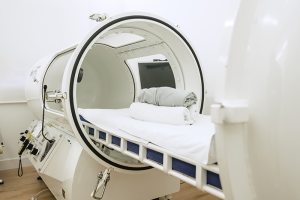The Joint Commission eliminates standards to align with CMS
The Joint Commission (TJC) announced it is eliminating a significant number (14%) of standards from its accreditation manuals as well as revising others in an effort to streamline requirements and make them as efficient and impactful on patient safety, quality and equity as possible. The standards reduction is also meant to provide much needed relief to health care professionals and organizations.
For health care organizations under the Hospital Accreditation Program, 56 standards were deleted and four were revised. For the Critical Access Hospital Accreditation Program, 37 were deleted and four were revised.
These eliminations and revisions did not result in significant changes for the physical environment standards, however. Within the Environment of Care (EC) and Life Safety (LS) chapters, only two standards were retired:
- Standard EC.02.01.03. The hospital prohibits smoking except in specific circumstances.
EC.02.01.03, EP 1: The hospital develops a written policy prohibiting smoking in all buildings. Exceptions for patients in specific circumstances are defined. Note: The scope of this EP is concerned with all smoking types — tobacco, electronic, or other.
- Standard LS.02.01.40. The hospital provides and maintains special features to protect individuals from the hazards of fire and smoke.
LS.02.01.40, EP 2: The hospital meets all other Life Safety Code automatic extinguishing requirements related to NFPA 101-2012: 18/19.4.2.
“Many of The Joint Commission’s physical environment standards are tied to the Centers for Medicare & Medicaid Services’ (CMS’s) Conditions of Participation (CoPs),” says Herman McKenzie, MBA, CHSP, director, physical environment department, TJC. “As part of the standards review, Joint Commission President and CEO Jonathan B. Perlin, M.D., Ph.D, MSHA, MACP, FACMI, directed a review all Joint Commission requirements that go above and beyond CMS’s CoPs in an effort to identify requirements that may no longer be relevant, as well as those that may be redundant. Additionally, The Joint Commission evaluated whether the time and resources needed to comply with a requirement are commensurate with the estimated benefit to patient care and health outcomes.”
A second tranche of standards is currently under consideration for elimination or revision, and a second announcement of burden reduction is anticipated in approximately six months.
For more information on the changes to TJC standards across accreditation programs and the methodology used to determine which standards to retire, please visit its website.




